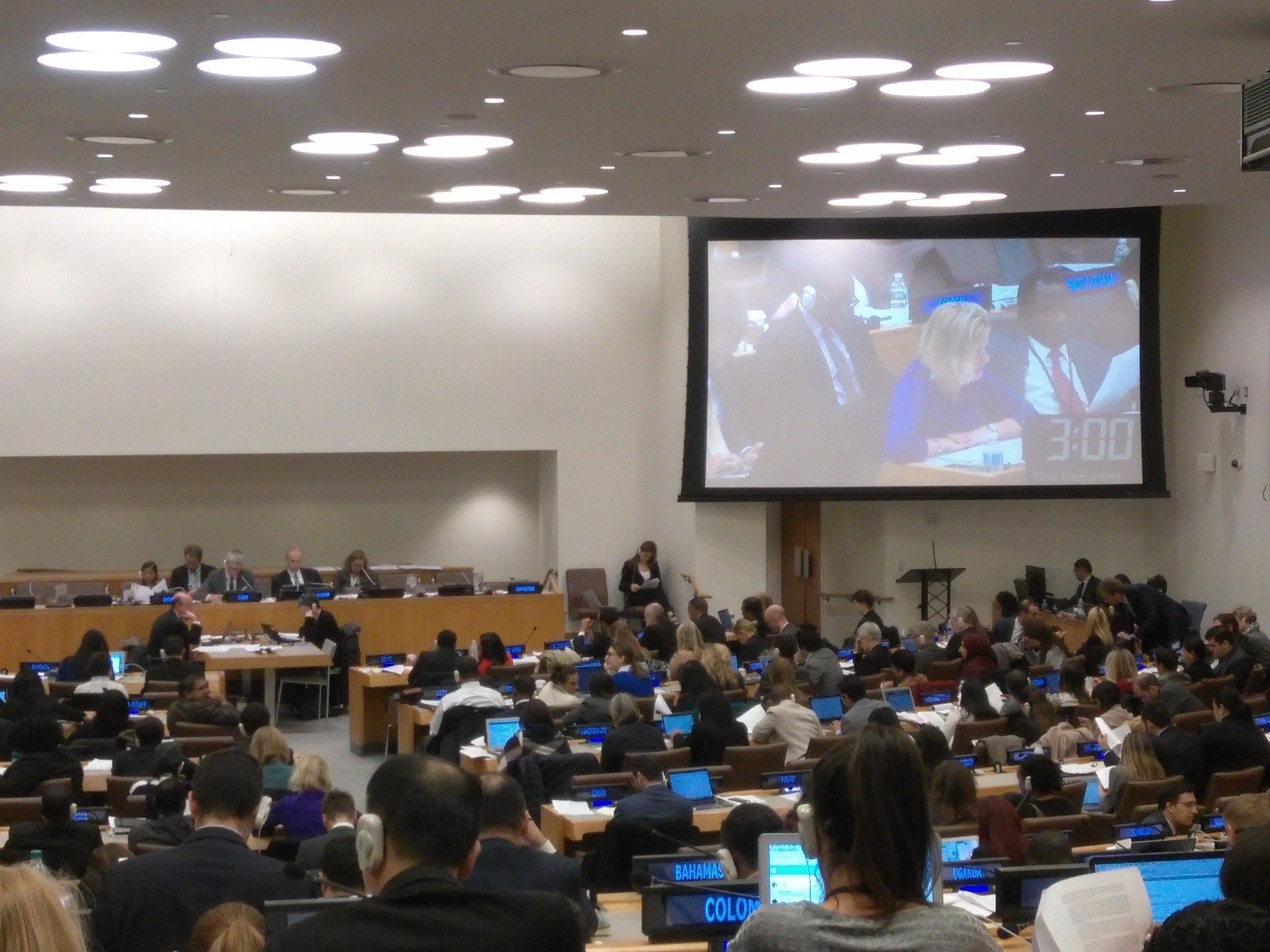Chief negotiating State Norway introduced the resolution by speaking of the ‘sustained and increased concern’ regarding attacks against human rights defenders and the ongoing relevance of the Declaration on Human Rights Defenders adopted by consensus 20 years ago. The Declaration elaborates binding principles of international human rights law so far as it applies to individuals, groups and associations promoting and defending human rights.
‘Consensus on this resolution that speaks to the implementation of the Declaration on Human Rights Defenders – which was also a consensus text – is a positive signal of recognition by States of the ongoing relevance of the commitments made 20 years ago,’ said ISHR’s Tess McEvoy.
In the past 20 years, Governments have made numerous commitments to promote and protect defenders’ rights. These have been captured in the Declaration and subsequent General Assembly and Human Rights Council resolutions. This resolution takes stock of existing obligations and focuses on their implementation – what has been done, and what remains to be done.
The resolution calls on States to share good practices on implementation. It also forms a base for future resolutions to develop specific mechanisms at the regional and international level for the implementation of State obligations to protect defenders.
‘This is a useful first step in what we see to be the big challenge with agreements made in multilateral human rights fora – their implementation’, said McEvoy.
Specifically, the resolution calls for three concrete measures:
- input by all stakeholders into a report on the promotion and implementation of the Declaration compiled by the Office of the High Commissioner for Human Rights;
- an assessment, by the Secretary-General, on the ways in which UN bodies do, or could, give due consideration to the Declaration in their work, and good practices related to provision of technical assistance and capacity building by the UN system; and
- a high-level event to discuss good practices and challenges in regard to implementation.
Importantly, the activities agreed to by all States in this resolution provide for the participation of human rights defenders themselves.
‘This resolution gives human rights defenders the opportunity to channel analyses and recommendations related to implementation into UN processes, with the ultimate aim of establishing better implementation practice and procedures,’ said McEvoy.
76 States co-sponsored the text, showing an increase from a similar resolution two years ago.
‘States from across the globe co-sponsored the text,’ said McEvoy. ‘It was particularly welcome that West African States such as Cote d’Ivoire, Mali, and Burkina Faso, who have recently taken initiatives to develop laws for the protection of human rights defenders, added their name to the list of co-sponsors this year.’
China acknowledged the flexibility shown by Norway regarding some suggestions made during the negotiations. However, China disassociated itself from one paragraph that referenced the work of human rights defenders as ‘legitimate’.
‘States disassociating themselves from sections of adopted resolutions is a frustrating tactic increasingly used at the Third Committee. It takes away from the very process of seeking agreement, advanced during weeks of negotiation,’ said McEvoy. ‘That said, China’s reservations in no way affect the consensus outcome.’
The Third Committee resolution will be considered by the General Assembly plenary in early December, and is expected to pass by consensus.
Full list of co-sponsors:
- Africa – Burkina Faso, Cabo Verde, Cote d’Ivoire, Ghana, Liberia, Mali, Morocco, Sao Tome and Principe, Tunisia
- Asia Pacific – Cyprus, Lebanon, Mongolia, Republic of Korea, Sri Lanka, Timor Leste, Vanuatu
- Eastern Europe – Albania, Armenia, Bulgaria, Czech Republic, Croatia, Estonia, Georgia, Latvia, Lithuania, Montenegro, Poland, Republic of Moldova, Romania, Serbia, Slovakia, Slovenia, The Former Yugoslav Republic of Macedonia, Ukraine
- Latin America and Caribbean – Argentina, Brasil, Chile, Colombia, Costa Rica, Dominican Republic, El Salvador, Haiti, Honduras, Mexico, Panama, Paraguay, Peru, Uruguay
- Western Europe and others – Andorra, Australia, Austria, Belgium, Canada, Denmark, Finland, France, Germany, Greece, Hungary, Iceland, Ireland, Italy, Liechtenstein, Luxembourg, Malta, Monaco, Netherlands, New Zealand, Norway, Portugal, San Marino, Spain, Sweden, Switzerland, United Kingdom, United States of America




